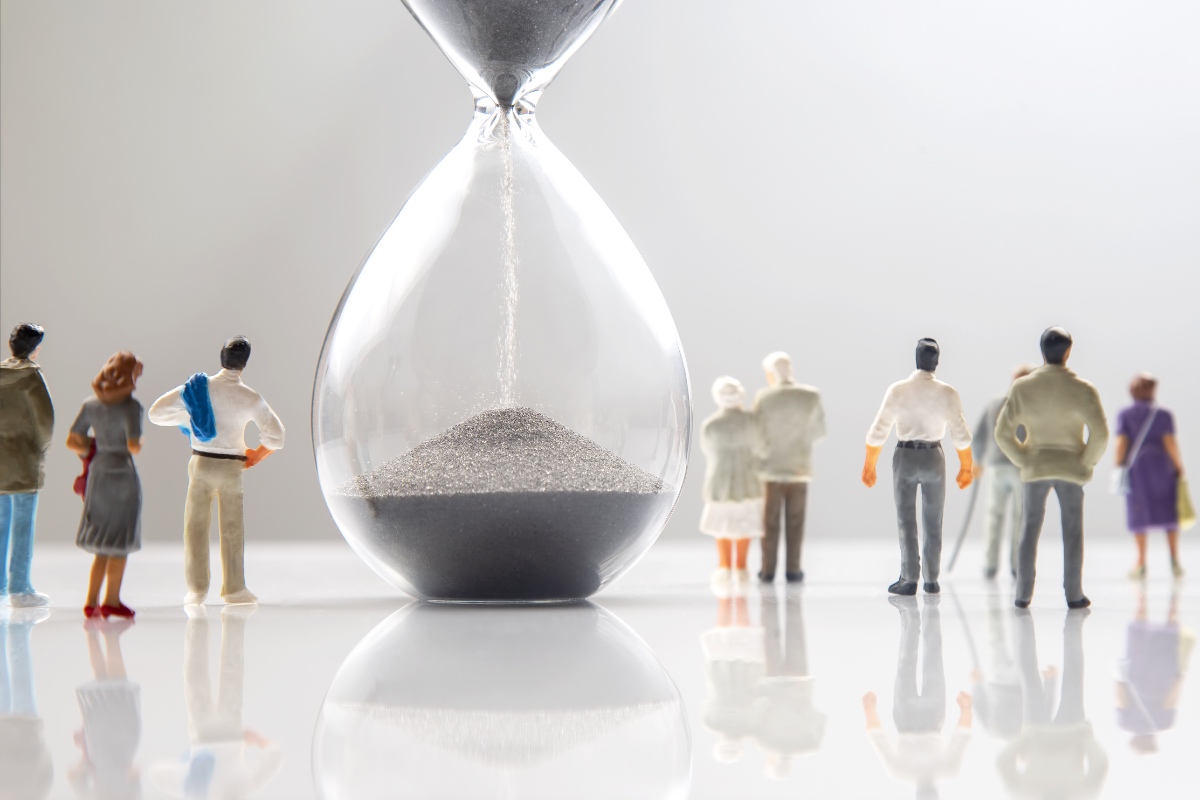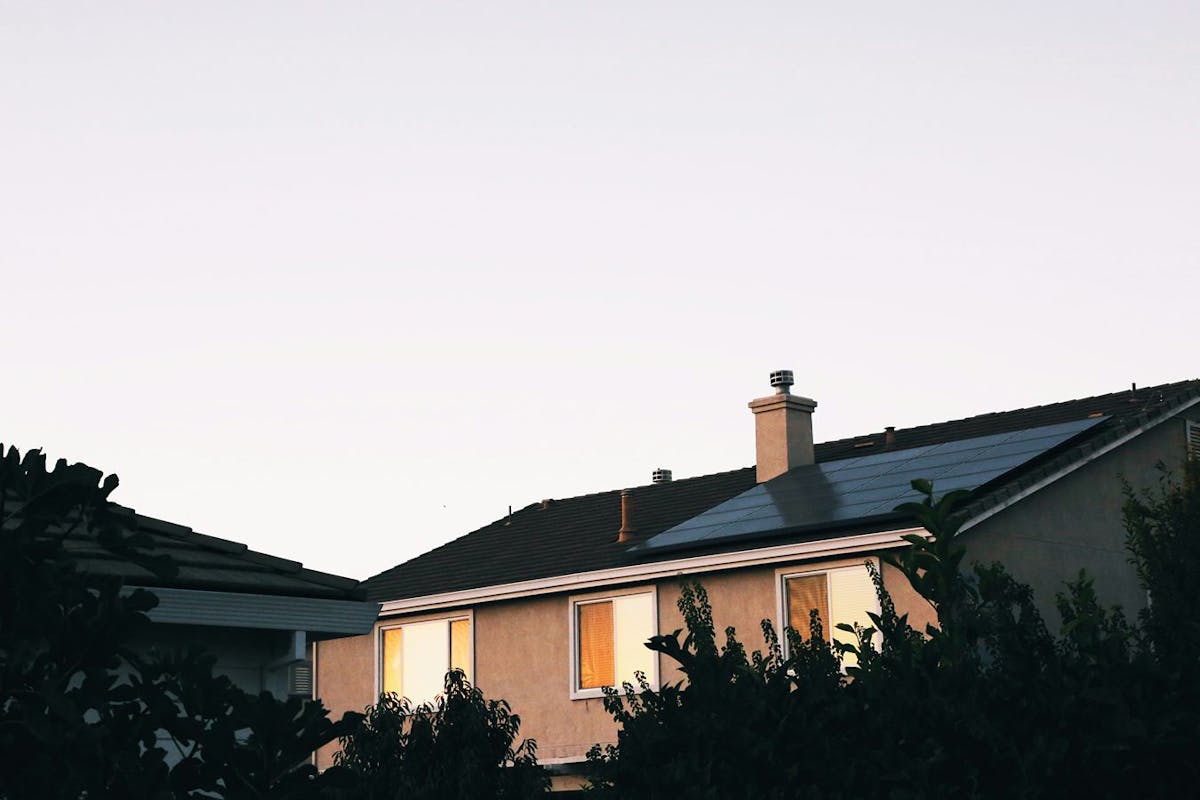How Long Do Solar Panels Last? Lifespan and Performance
Last edited
Author
Andrew Giermak
Solar and Electrification Writer and Editor
Editor
Andrew Blok
Electrification and Solar Writer and Editor

Solar panels can generate free, clean, and renewable energy for 25 years or longer and solar technology is making this lifespan even longer and more reliable. Yet, for your home, budget, and energy needs, going solar is an investment. It’s a decision which will be important to your initial and long-term finances.
As you’re considering residential solar, maybe for the first time, we’ll help you know what to expect and how to get the most out of a solar investment.
See how much you can save by going solar with Palmetto
How long solar panels last
Knowing how long home solar panels last can help you better estimate long-term value you can get out of them.
Solar panels don’t just produce the same amount of power for 25 years and then suddenly stop producing electricity. Instead, they slowly degrade over time, producing less power as they get older. At a certain point, it may make more financial sense to install new panels to get back to higher generation.
The industry uses 25 years as the average solar panel lifespan because many panel warranties are that long. Solar panels become less efficient over time, and most warranties guarantee they’ll be about 85-90% efficient after 25 years.
With regular care and attention, your system can continue serving you beyond 25 years. However, when your solar panels near their 25th birthday, you should begin preparing for replacements.
Other factors that affect solar panel lifespan are the quality of your installation, how often you have extreme weather, and the quality of your solar panels.
Solar panel warranties
The average 25-year lifespan of a solar panel aligns with the typical warranty terms many solar panel manufacturers offer. There are two types of solar panel warranties, and warranty terms can provide you with additional information about the expected life of a solar panel.
The first is an equipment warranty, which guarantees the panel against manufacturing defects. For example, an equipment warranty might guarantee the panels won’t fail for 10 or 12 years.
The second is a performance warranty. A performance warranty might guarantee your panels will produce at least 90% of their maximum production for the first 10 years, and then at least 80% of their maximum production for the next 15 years.
Higher efficiency panels may come with a better performance warranty, guaranteeing they maintain increased efficiency over time.
Solar panel maintenance
Proper maintenance and service makes it more likely you’ll get a full 25 years or more of steady production from your solar panels.
A professional can handle tasks such as checking your system’s performance, cleaning the panels, and inspecting the system for damage.
A solar panel monitoring and service plan can include regular maintenance and early issue detection. In addition to extending your system’s life, regular professional service may be required to keep your warranty intact.
See how much you can save by going solar with Palmetto
What is solar panel degradation rate?
Solar power system degradation occurs in all panels, regardless of type. As they age, solar panels produce less electricity from the same amount of sunlight. Typically, higher-quality, high-efficiency panels have a lower degradation rate. The lower the solar panel degradation rate, the more energy that panel will produce over its lifetime.
Ordinarily, degradation takes away 0.3-1.0% of a panel’s efficiency a year, depending on the age of your panels. The National Renewable Energy Laboratory found, “solar panels have a median degradation rate of about 0.5% per year,” though some warranties guarantee a lower rate of degradation.
For instance, assume your solar panels have an initial output of 10,000 kWh annually. If they degrade at a rate of 0.4% each year, you can calculate their output at the end of the first year as follows:
- Initial output = 10,000 kWh
- Lost output = 10,000 kWh × 0.004 = 40 kWh
- Remaining output = Initial output − lost output
- Remaining output: 10,000 kWh − 40 kWh = 9,960 KWh after 1 year
In the second year, your solar panels lose 0.4% again, but they have a lower initial output. You can calculate their output at the end of the second year as follows:
- Initial output = 9,960 kWh
- Lost output = 9,960 kWh × 0.004 = 39.8 kWh
- Remaining output = Initial output – lost output
- Remaining output: 9,960 kWh – 39.8 kWh = 9,920 KWh after 2 years
Here’s a general idea of how much production is left after 25 years, based on typical degradation rates:
| Solar panel degradation rate (average per year) | Output reduction after 25 years | Output remaining after 25 years |
|---|---|---|
| 0.3% | 6.96% | 93.04% |
| 0.5% | 11.33% | 88.67% |
| 0.8% | 17.53% | 82.47% |
| 1.0% | 21.43% | 78.57% |
To be clear, those figures are just an estimate. The actual degradation rate may vary over time depending on factors like weather and service.
Solar inverter and battery lifespan
While your solar panels typically last for 25 years or more, that doesn’t mean your system will be trouble-free the entire time.
Keep in mind other components in your solar power system also wear and require regular service, maintenance, and replacement, including inverters, wiring, racking, and add-ons like solar battery storage.
Solar inverters
The average inverter lasts 10-12 years, so you’ll likely replace it at least once in the average lifespan of solar panels.
While solar inverters may not be as visible as solar panels, they are as crucial to system performance. When solar panels absorb sunlight, they channel the energy to the inverter, which converts the DC current from the panels into the AC electricity your home uses.
If your solar panels don’t produce enough electricity to meet your needs, the inverter draws power from the grid. Moreover, inverters can send surplus power from your system to the electricity grid if you’re eligible for net metering.
Solar batteries
Solar batteries help you make the most of your system's power generation, as they store surplus electricity for later use. However, the average solar battery lifespan is about 10 years, and they may need to be replaced sooner than your panels in most cases.
Wiring
Your system has a network of wires for transmitting electricity from the panels to the inverter and into your home. If there’s damage to the wiring, especially between the panel and the inverter, you’ll see less solar energy converted into electricity, and the lifespan of your system may be reduced.
Improving solar panel life expectancy
While your solar panel system will get less efficient over time, there are things you can do to help. Since most degradation happens gradually, adopting good maintenance habits can help you identify and address such issues early, preventing additional damage. The earlier you can account for loss in efficiency, the greater chance you have of preventing long-term concerns.
Here’s what you can do to keep your panels in good working order.
Clean your solar panels
The debris, including pollen, bird droppings, leaves, and dust, can reduce your panels’ ability to absorb sunlight, reducing generation capacity. Depending on the substance, it can damage the panel glass or other components.
In most places, regular precipitation will clean your solar panels well enough. In particularly dry or dusty places, a gentle rinse from ground level using a garden hose is enough to clean your solar panels. Consider cleaning them more frequently if you live in an especially dusty area. This maximizes your solar power production. If you need to go beyond a gentle rinse, professional cleaning is recommended.
Sign up for professional solar service
Professional monitoring and maintenance can keep your solar panels producing at their peak level.
Palmetto Protect, for example, offers real-time energy monitoring, fast and reliable support, and comprehensive energy recommendations, with a variety of service levels to match your specific needs.
When to install or replace solar panels
If your solar panels are older, you might be thinking about replacing them with new panels. One way to tell you need new equipment is to monitor the power your system produces.
In a solar monitoring portal, like on the Palmetto App, you can view production stats and compare your current monthly production with historical averages.
Another sign it's time to consider an upgrade is if your utility bills are increasing. There is some seasonality to solar electricity production, so your utility bills can fluctuate some, but if you notice large increases in your utility company bill compared to similar times in previous years, that can indicate your solar panels are degrading and it's time to consider a replacement.
In short: If your solar panels are still producing enough electricity to power your home, and none of the panels are broken or damaged, you don't need to replace your panels. But, if you're drawing a lot of extra power from the grid, or your system hasn't been maintained and some of the equipment is broken, it might be time to contact a solar installer and talk about an upgrade.
Interested in seeing if going solar is a good decision for your family and your home? You can get started today with the Palmetto app, our solar savings tool or by reaching out to a solar advisor.
See what solar can do for you:
Frequently asked questions
How often do solar panels need to be replaced?
Solar panels have an average lifespan of about 25 years. Higher-quality solar panels tend to have a longer lifespan and greater efficiency longer into that lifespan.
Do solar panels degrade over time?
The efficiency of solar panels degrades over time at a rate of about 0.3-1.0% per year.
Do solar panels need maintenance?
Yes, solar panels need maintenance, monitoring, and service over their long lifespans. Having professional technicians do maintenance and any needed service about once a year can extend your system’s lifespan and keep its efficiency as high as possible over time.


